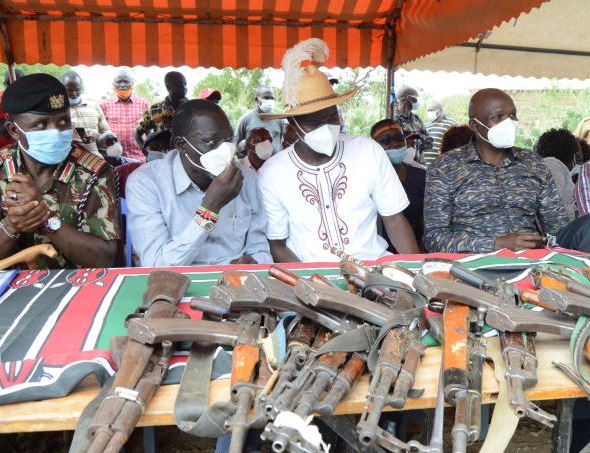
From left- Rift Valley Regional Commissioner George Natembeya, Governor Josphat Nanok, and others. [Yvonne Chepkwony, Standard]
Over the past several weeks, a glance at newspapers and primetime news would have one thinking that Armageddon has descended upon Kapedo, the village bordering Pokot and Turkana counties that media outlets have described as “sleepy”. One thing is certain though — no one in Kapedo is sleeping soundly as government forces battle what we are told are a group of bandits and rudimentary militia. Police officers and locals alike have been slain gangland style while the region stands at the brink of a humanitarian crisis — it’s a sad state of affairs. While I mourn the dead and empathise with the people of Turkana, I want to probe why the region’s security has always remained rickety and on stilts. Government officials, it seems, would want us to believe that violence in that region is spawned by elected leaders who sponsor bandits in some misguided quest for political power and glory. While this sounds plausible, I refuse to accept that line of reasoning. Intellectual simpletons have pointed a finger at bad cultural practices that encourage raiding of cattle among nomadic communities. This argument, too, is a lazy reach. To understand why the Turkana and the Pokot have become such predatory and malevolent neighbours, a dive into Kenya’s colonial past is necessary.